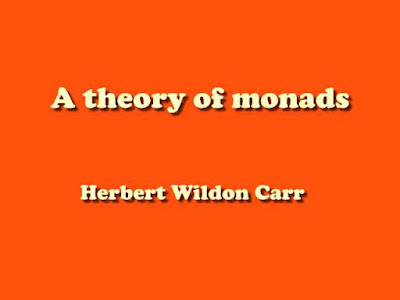1925,3,A. P. Chekhov,1,Abraham
Lincoln,1,Abraham lincoln,1,Accounting,2,Acting,7,Actors,2,Actress,2,Adventure,16,Advertising,13,aesthetics,2,Agatha Christie,2,Agriculture,3,Airplane,1,Akhnaton,1,Alberta distance Learning,1,Alchemy,2,Aldous Huxley,1,Alexander the great,1,Alexandre Dumas,7,Algebra,1,Algernon Blackwood,1,Alice's adventures in wonderland,1,American History,26,Anarchism,8,Anarchy,5,Anatomy,1,Ancient Egypt,19,Ancient Greece,15,Ancient History,49,Ancient Rome,4,Andrew Lang,2,Andrew Loomis,1,Anger Management,1,Animal magnetism,1,Animals,17,Animism,1,Anthropology,54,Applied Psychology,15,Arab History,10,Arabian Nights,1,Arabic books كتب عربى,2,Arabic Language,1,Arabic Literature,4,architecture,10,Aristocracy,1,Aristotle,3,Art,10,Art and Crafts,74,Arthur Conan Doyle,3,Arts,3,Asia,1,Astrology,5,astronomy,3,Atheism,43,Atlantis,7,Atomic,1,Audiobooks,26,August Strindberg,1,Auguste Comte,1,Autosuggestion,5,Bacteriology,1,Bahaism,1,Banks and banking,3,Bees,1,Bertha von Suttne,1,Bertrand Russell,8,Best New books,1,Bible,6,Bicycle,1,Biography,157,Biography and Memoirs,114,Biology,23,Birds,4,Black History,1,Book Suggestion,3,Botany,3,Botany and Plants,3,Brainwashing,2,Bram Stoke,1,Bram Stoker,2,Brazil,1,Buddhism,20,Business,115,Business plan,1,C. Alphonso Smith,2,Cairo,1,Calculus,2,Capitalism,1,Caricatures,2,Carl Jung,2,Carpentry,2,Celtic,1,cement,1,Characters and characteristics,8,Charles Darwin,3,Charles Dickens,17,Charles Lewis Hind,1,Chemistry,13,Chess,6,Chicken,2,Children Books,13,China,7,Chinese Language,4,Chinese Literature,1,Chinese Philosophy,7,Chiropractic,2,Christianity,18,Christians,1,Christopher Columbus,1,Cicero,2,Civil war,1,Civilization,19,Clairvoyance,1,Classic Books,237,Classic Movies,1,Clea,1,Cleopatra,1,Climate,1,Clothes,2,Coffee,1,Collection,60,Comedy,1,Comic Book,8,commerce,2,Communism,2,compartive religion,6,Computer and Programming,2,Confucius,1,Conspiracy,1,Cooking,10,Cooperation,2,Corliss Lamont,1,Cosmology,2,Courage,3,Crausders,1,Crimes,17,Criticism,14,Crusaders,2,Crusades,3,Cynicism,1,D.H. Lawrence,1,Dante,2,David Hume,1,Death,1,Debate,3,Democracy,2,Demosthenes,1,Descartes,1,Description and travel,58,Design,4,detective,5,Determinism,5,Devil,3,Diary,3,Dictatorship,2,Dictionary,55,Directing,1,Discourses,1,Don Quixote,1,Dracula,1,Drawing,13,Dreams,2,Dutch Language,1,e,1,Eastern Philosophy,30,economics,35,Economy,19,Edgar Wallace,4,edi,1,Editor's Picks,308,Editor's Post,1,Education,14,Educational,2,Educational videos,1,Egypt,14,Egypt History,21,Egyptology,6,Elbert Hubbard,1,Electricity,1,Electromagnetism,1,Electronics,2,Emanuel Lasker,1,embroidery,2,Emerson,2,Emile Zola,2,Empedocles,1,Encyclopedia,14,Engineering,12,England,1,English Grammar,3,English History,24,English Language,2,English Literature,21,Engraving,2,Entomology,2,Epictetus,4,Epicureanism,9,Epicurus,4,epidemics,1,Ernest Hemingway,1,Ernst Haeckel,2,Escape stories.,4,Espionage,1,Essays,75,Ethics,91,Etiquette,1,Etsu Inagaki Sugimoto,1,European history,25,Evolution,32,Exceptional children,1,Exchange,1,expression,1,Fairy Tales,19,Fallacy,1,Fantasy,35,Fascism,1,Fate,2,Fear,4,Featured,155,Fiction,3,Finland,1,Fishing,1,Fitness,5,Food,6,Food Business,2,France,1,Francis Bacon,4,Frank C. Haddock,1,Frank Harris,1,Frank L. Packard,1,Franz Kafka,1,Frederick Douglass,1,Free Will,2,Freemasonry,12,freethought,20,French,10,French History,39,French Literature,3,French Revolution,13,French-français,2,Friedrich Nietzsche,4,Full Audiobooks,7,Furniture,4,Fyodor Dostoevsky,2,Fyodor Dostoyevsky,5,G. K. Chesterton,1,Gadsby,1,Gallery,1,Gambling,1,Games,7,Gassendi,1,Genetics,1,Geography,3,Geology,4,George Berkeley,1,George de Horne Vaizey,1,George Gissing,1,George Santayana,2,German History,1,German Language,6,German philosophy,2,Ghost,1,Giulio Carcano,1,God,3,Gothic,6,Grammar,1,Grant Allen,2,Greece,2,Greek History,16,Greek Language,2,Greek Mythology,1,Greek Philosophy,19,Grocery,1,Gustave Le Bon,1,Guy de Maupassant,1,H. G. Wells,1,H.G. Wells,4,Habit,1,Hallucinations,1,Hand reading,1,Happiness,2,Harvard Classics,3,Health,14,Heath,1,Hebrew,3,Hegel,1,Henry Rider Haggard,4,heraldry,1,Herbs,1,Hermetic,7,Hinduism,7,Historical Novel,57,History,434,History Japan,1,Hobbies,1,Holland,1,Home and Garden,2,Homer,1,horology,2,Horror,8,How-to Books,2,Hstory,1,Humanism,7,Humanity,1,Humor,6,Hungarian Language,2,hurricanes,1,hypnotism,2,Idealism,1,Immanuel Kant',1,Immigration,1,Indian,1,Indian History,7,Indian Philosophy,6,Individualism,1,Individuality,1,Industry & Products,36,Inferno,1,Ingersoll,2,Insects,2,Investment,6,Ireland,5,Irish History,6,Irish Language,1,Isaac Asimov,1,Islam,17,Italian books,2,Italian Language,8,Italian Literature,1,Italy,1,J. M Robertson,1,J. M. Robertson,1,Jack London,13,James Allen,2,James Joyce,1,Jane Austen,1,Japan,3,Japanese,2,Japanese Language,1,Japanese literature,1,Japanese Manga,1,Jean-Jacques Rousseau,2,Jewish,1,Jews,2,Jiddu Krishnamurti,6,Jobs,6,John Dewey,1,John Dos Passos,1,John Meade Falkner,1,Joseph Conrad,3,Joseph McCabe,1,Journalism,6,Judism,2,Jules Verne,2,Julius Caesar,1,Kabbalah,2,Karma,1,Knowlege,1,Knut Hamsun,1,Kon Tiki,1,Koran,1,Korean Language,2,l,2,Latin Language,3,Law,2,Law of Attraction,2,Learn English,64,Learn French,11,Learn German,6,Learn Italian,6,Learn Languages,101,Learn Spanish,10,Learn Thai,3,Legends,2,Leo Tolstoy,5,Lettering,1,libro italiano,2,libros españoles,4,Linguistics,4,Lionheart,1,Literature,47,Liverpool,1,Logic,31,London,1,Lucian,1,Lucretius,5,Ludovico di Varthema,1,Magazines,5,Maggie,1,Magic,6,Magic Tricks,4,magnetism,3,Management,1,Marcus Aurelius,8,Mark Twain,6,Marketing,29,Marquis de Sade,1,Martial and Self-Defense,6,Marxism,1,Masonic,2,Materialism,5,Mathematics,10,Maxims,8,Maya,1,Mechanics,1,Medical,7,Medicine,1,Mentalism,4,Middle Ages,9,Militarism,1,Military,2,Mind,5,Moby Dick,1,Modern History,22,Modern Philosophy,86,Money,17,Mongol,1,Monism,1,Music,7,Mustafa Kemal,1,Mystery,4,Mysticism,4,Mythology,10,Mythology and Folklore,88,Naples,1,Napoleon,9,National characteristics,1,Nationalism,1,Native American,1,Natural History,5,Natural Philosophy,7,Naturalism,10,Nature,8,Netherlands,2,New Thought Movement,10,New York,1,Niccolo Machiavelli,2,Nietzsche,4,Nirvana,2,Norway,1,Norwegian Language,1,Nostradamus,2,Novels,487,O. CHenry,1,Occultism,170,Ontology,7,Opinions,1,Orations,1,Orison Swett Marden,5,Ornaments,6,Ornithology,1,Outlaws,1,Pain,1,painting,9,pandemic,1,pantheism,1,Parapsychology,2,Paris,1,People Reading,2,Perception,2,Persia,1,Personal Memoirs,4,Peru,1,Pessimism,7,Pharmacognosy,1,Philosophy,390,phonetics,3,Photography,1,Physics,22,Physiology,2,pigeon,1,pinned,1,Planting,1,Plato,10,Plays,16,Poetry,19,Poker,3,Political,108,Political economy,5,Portability,1,Portuguese,1,Poultry,4,Practical Philosophy,3,Pragmatism,3,Prison,3,Probabilities,1,Prophecy,1,Prose,1,Proverbs,1,Psychiatry,1,Psychoanalysis,9,Psychology,122,Ptolemaic,1,Public Speaking,9,Punctuation,3,Puppet-plays,1,Pyschology,2,Pythagoras,1,Quantum Physics,1,Queen Moo,1,Quotations,30,Quran,2,Races,4,Radio,1,Radium,1,Rationalism,26,Reading,15,Real estate,1,Reality,2,Recipes,1,Reference,1,Reincarnation,1,Relativity,4,Religions,238,Revolution,2,Rhetoric,1,Richard Hughes,1,Rider Haggard,1,Robert Hichens,4,Robin Hood,1,Roman Empire,10,Roman history,21,Romance,21,Romania,1,Roses,1,Rudolf Christoph Eucken,2,Rudyard Kipling,1,Russia,1,Russian History,5,Russian Language,2,Russian revolution,4,Sacred Texts,6,Sagas,1,Saladin,2,salesman,1,salesmanship,17,Satire,3,Sayings,5,Schopenhauer,8,Science,84,Science Fiction,42,Scotland,1,Sculpture,8,Secret Society,1,Secret Teachings,4,Self-culture,1,Self-Defense,1,Self-Help,219,Selling,46,Seneca,3,Sewing,2,Sex Education,3,Sexuality,17,Shakespeare,7,Shamanism,3,Shaw Desmond,1,Sherlock Holmes,3,Short Stories,34,Sigmund Freud,5,Silk,1,slang,1,Slang American,1,Slavery,4,Small Business,6,Sndbad,1,Social Class,3,Social history,2,Social Justice,1,Social Life,6,Social problems,5,Social psychology,6,Social Study,3,Socialism,13,Sociology,35,Socrates,3,Spanish books,5,Spanish Language,10,Speculation,2,Speeches,2,Spinoza,2,Spiritualism,13,Sport,4,Stars,1,Statics,1,Statistics,3,Stella Benson,1,Stephen Crane,1,Stock Market,1,Stoicism,31,Strength,1,Strikes,1,Study Skill,19,Success,35,Sufism,2,Supernatural,1,Superstition,1,Survival,3,Swedish Language,1,Swindler,1,Symbolism,2,Tamil,1,Tea,2,Teach yourself,357,Thai books -,3,Thai Language,5,Thailand History,2,The West,1,Theology,4,Theory of Knowledge,4,Theosophy,7,Theosophy. Religions,1,Thriller,1,Timothy Leary,2,Timothy Leary,1,Titanic,2,Totemism,1,Tramp,6,Travel,52,Tunis,1,Turkey,1,Typhoon,1,UK,1,Upton Sinclair,4,Utilitarianism,6,Utopia,16,Value,3,Victor Hugo,2,Viking,1,Voltaire,4,W. Somerset Maugham,3,Wang Yangming,1,War,24,William James,4,William Thackeray,1,William Walker Atkinson,5,Wine,1,Woman,1,Women,3,wood,1,Workers,2,Working Class,2,World War,3,Worry,1,Writer,13,Writing,42,Yoga,3,Zarathustra,1,Zen,5,Zoology,23,











